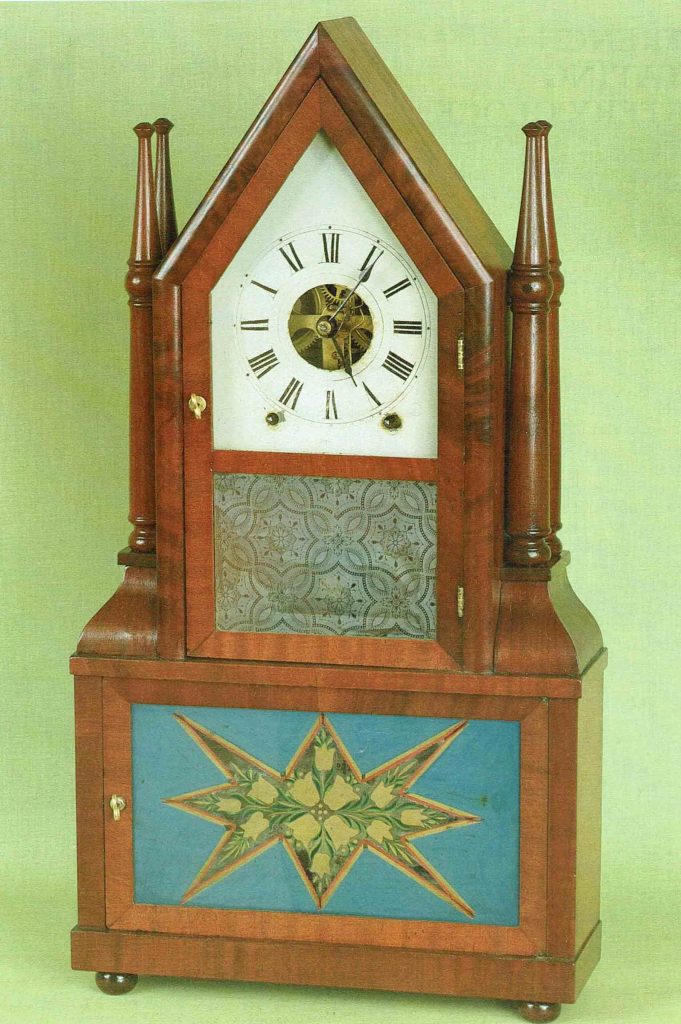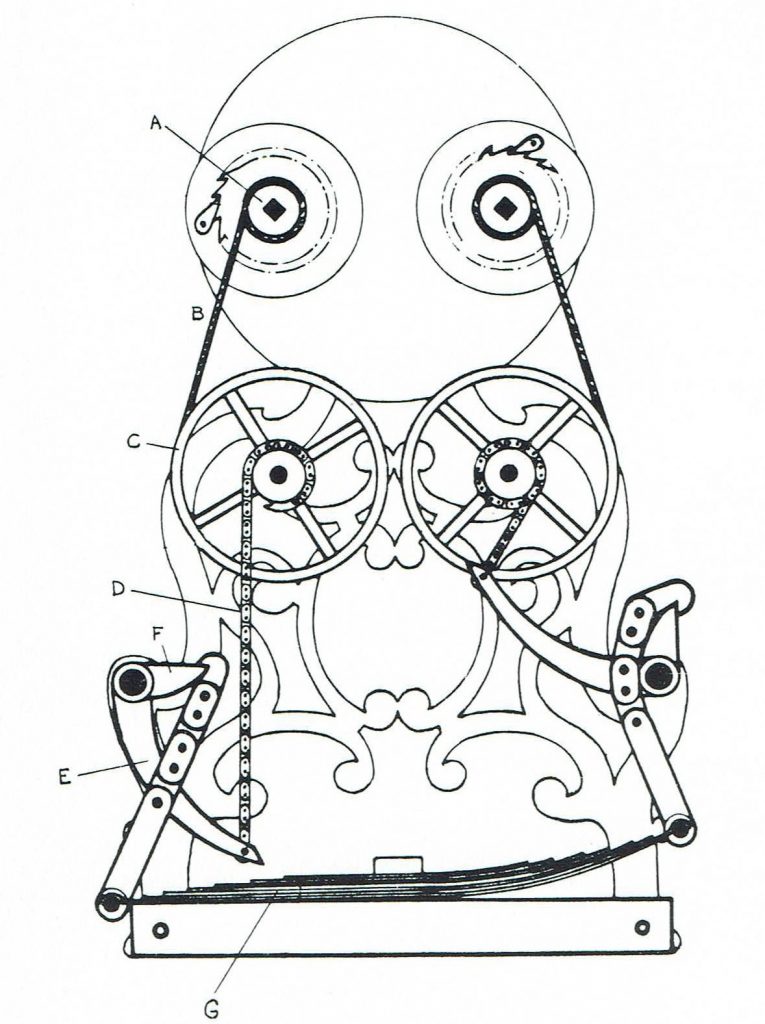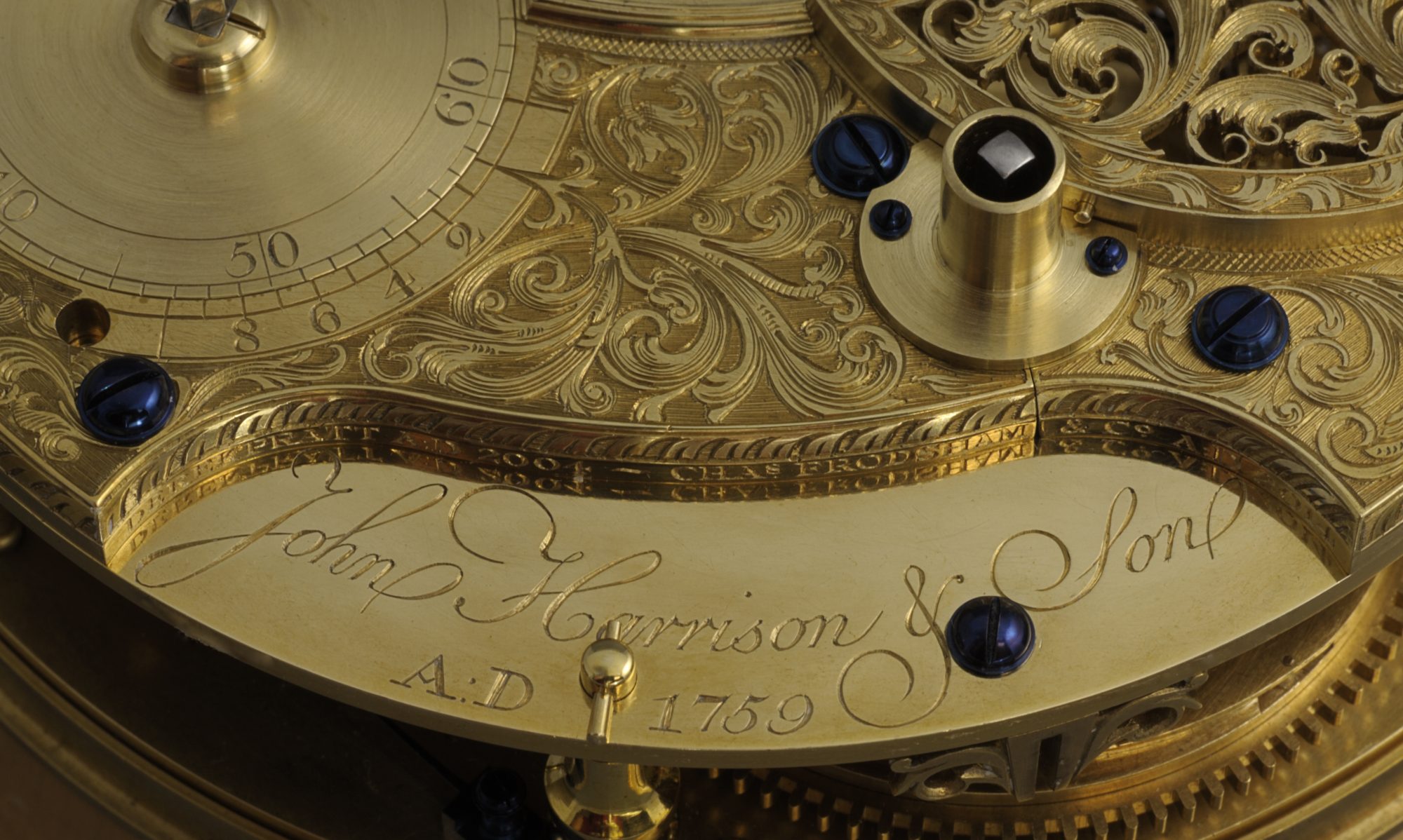5th August 2021
Peter Gosnell
Joseph Ives and his Lever Spring Clocks
Peter Gosnell, who along with his and Beresford’s research into the British United Clock Co., has contributed talks to us in the past notably in June 2018, “Industrial Clock Manufacture in Birmingham Before 1885” and April 2019, “The Untold Story of British Jerome”.
Peter will be talking about Joseph Ives, the Connecticut clock manufacturer and his Lever Spring (sometimes called “Wagon Spring” ) clocks.
Circa 2000 Peter became a volunteer member of staff under Jonathan Betts at what was then called The Old Observatory, Greenwich. By association, this gave him access to some examples of Lever Spring clocks in both public and private collections in the UK. Between the years 2001 – 2008 further research on Lever Spring clocks was undertaken during Peter’s yearly visits to America when once again access to rarer clock examples was forthcoming.

In 1847 Silas B. Terry, the youngest clock making son of Eli Terry, invented a process for hardening and tempering high carbon steel to make coil springs suitable for driving clock movements. Before this in England and Europe, the process had been a closely guarded secret giving them monopoly of supply to American clock makers. Prior to 1847 there had been two alternatives devised in Bristol, Connecticut to the use of these expensive imported steel coil springs.

One developed by Joseph Ives’s nephew, Joseph Shaylor Ives in 1836, used brass instead of steel to make the coil springs. The other solution developed by Joseph Ives himself from 1817 until 1859 made use of the leaf spring in conjunction with an equalising device. This development of the lever spring by Joseph Ives will be the major focus of tonight’s talk.
The meeting was held at The White Hart Barn in Godstone and made accessible via Zoom to those unable to attend.
